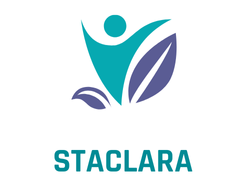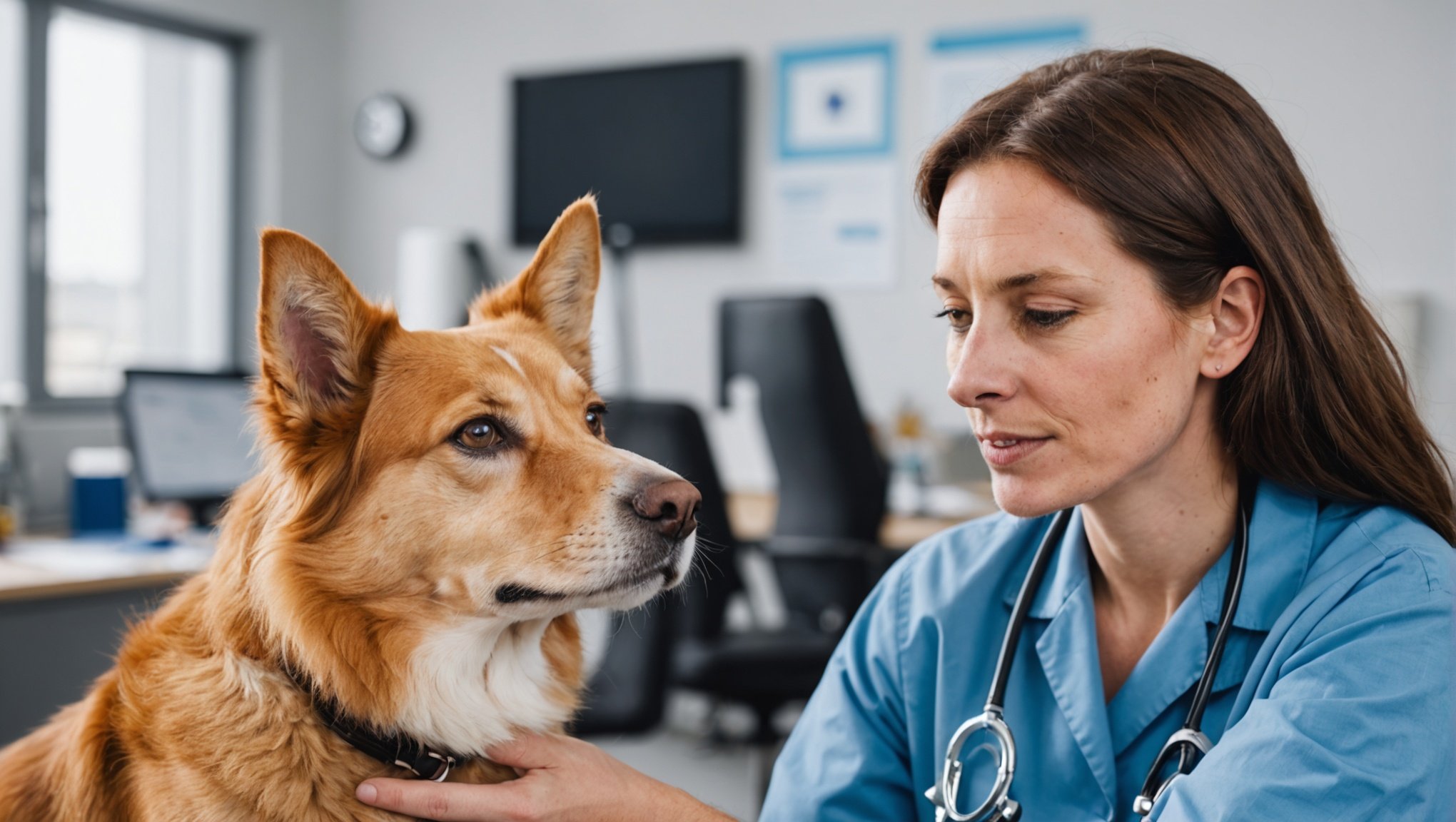Veterinarians in the UK face the challenge of managing chronic pet conditions with limited traditional methods. Embracing holistic approaches can transform veterinary practices. These strategies not only enhance the physical health of pets but also improve their emotional well-being. By integrating alternative therapies, nutritional guidance, and preventative care, veterinarians can create tailored treatment plans. This shift empowers professionals and fosters a deeper bond between pets and their owners. Discover how holistic practices can lead to more effective chronic care management for our beloved companions.
Overview of Holistic Approaches in Veterinary Medicine
Holistic veterinary care embraces a comprehensive approach, focusing on the overall health and well-being of pets rather than just treating symptoms. This method integrates conventional medicine with alternative therapies to provide a more balanced treatment plan. The core principle is to treat the whole animal—mind, body, and spirit—by considering lifestyle, environment, and emotional factors.
In parallel : Essential Strategies for UK Nephrologists: Optimizing Phosphate Control in Dialysis Patients to Prevent Bone Disorders
A key aspect of holistic veterinary care is its emphasis on addressing chronic conditions in pets. Many traditional treatments focus on alleviating symptoms, but holistic methods aim to identify and treat the underlying causes. This can be particularly beneficial for pets suffering from chronic pain, allergies, or digestive issues.
Common Holistic Therapies
- Acupuncture: Stimulates specific points to promote healing.
- Chiropractic Care: Aligns the spine to improve nervous system function.
- Herbal Medicine: Uses natural plant extracts to support health.
Holistic veterinary care is gaining popularity as pet owners seek more natural and integrative medicine options for their companions. By combining traditional and alternative therapies, holistic approaches offer a more personalized and effective way to enhance pet health and quality of life. As one veterinarian aptly put it, "Treat the cause, not just the symptoms."
In the same genre : Exploring Innovative Strategies by UK Pain Experts to Tackle Neuropathic Pain Without Opioids
Common Chronic Conditions in Pets
Understanding the chronic pet conditions prevalent in the UK is crucial for ensuring optimal pet health. These conditions significantly affect the quality of life for many animals.
Prevalent Conditions
Chronic conditions such as arthritis, diabetes, and kidney disease are widespread among UK pets. Arthritis, for instance, affects mobility and comfort, leading to decreased activity levels. Diabetes requires ongoing management to prevent complications. Kidney disease can cause severe discomfort and necessitates regular veterinary care.
Impact on Quality of Life
The impact of these chronic conditions on pets' quality of life is profound. Pets suffering from such conditions often experience pain, reduced mobility, and decreased energy levels. This can lead to changes in behavior and a decline in overall well-being.
Statistics
- Arthritis: Affects approximately 20% of dogs over one year old.
- Diabetes: Diagnosed in about 1 in 300 dogs and 1 in 230 cats.
- Kidney Disease: Common in older cats, affecting 1 in 3 cats over 10 years old.
These statistics underscore the importance of proactive veterinary medicine in managing chronic pet conditions. By addressing these health issues, pet owners can enhance their pets' quality of life and ensure they live healthier, happier lives.
Benefits of Integrating Holistic Approaches
Exploring the benefits of holistic care in veterinary medicine reveals significant advantages over traditional methods. This approach not only improves pet health but also enhances veterinary practice by offering more comprehensive treatment options.
Holistic treatments often lead to improved outcomes, as demonstrated in various case studies. For instance, a dog suffering from chronic arthritis experienced increased mobility and reduced pain after integrating acupuncture and herbal medicine into its treatment plan. Such examples highlight the potential for holistic methods to reduce reliance on pharmaceuticals, thus minimizing side effects associated with long-term medication use.
Advantages of Holistic Treatments
- Improved Pet Health: Addresses root causes, not just symptoms.
- Enhanced Veterinary Practice: Offers a broader range of treatment options.
- Reduced Pharmaceutical Reliance: Lowers risk of side effects.
The integration of holistic approaches in veterinary practice can significantly enhance the quality of care provided to pets. By focusing on the whole animal, veterinary professionals can tailor treatments that are both effective and sustainable. This not only improves pet health but also fosters a more personalized and compassionate approach to veterinary care, aligning with the evolving expectations of pet owners seeking comprehensive health solutions for their companions.
Evidence-Based Holistic Therapies
Exploring the realm of evidence-based practice in veterinary medicine highlights the growing acceptance of holistic therapies. These therapies are increasingly supported by veterinary research, which provides a foundation for their integration into mainstream veterinary care.
Scientifically Supported Therapies
Holistic therapies with proven efficacy include acupuncture, chiropractic care, and herbal medicine. Research demonstrates that acupuncture can effectively manage pain and inflammation in animals. Chiropractic care is shown to improve mobility and address musculoskeletal issues. Herbal medicine, supported by studies, offers natural alternatives for managing chronic conditions.
A veterinarian noted, "Scientific validation of holistic therapies encourages their adoption in practice, enhancing treatment outcomes."
Role of Research
The role of research in holistic veterinary care is pivotal. It not only validates the effectiveness of these therapies but also guides their application in clinical settings. By building a robust body of evidence, research ensures that holistic treatments are both safe and effective for pets.
- Acupuncture: Reduces pain and inflammation
- Chiropractic Care: Enhances mobility
- Herbal Medicine: Manages chronic conditions
By embracing evidence-based holistic therapies, veterinary professionals can offer comprehensive care that aligns with modern veterinary standards.
Success Stories from UK Veterinarians
Exploring the real-world impact of holistic veterinary practices offers valuable insights into their effectiveness. These case studies demonstrate how integrating alternative therapies has transformed pet care.
Detailed Case Studies
Veterinarian Dr. Smith recounts a compelling success story involving a Labrador suffering from chronic arthritis. By incorporating acupuncture and herbal medicine, the dog's mobility improved significantly, reducing its reliance on pain medication. Dr. Smith reflects, "The holistic approach allowed us to address the root of the problem, not just the symptoms."
Challenges and Triumphs
The journey of integrating holistic methods is not without its challenges. Veterinarians often face skepticism from traditionalists. However, the triumphs, such as enhanced pet health and satisfied pet owners, make the effort worthwhile. Dr. Jones, a pioneer in holistic veterinary practices, notes, "The biggest challenge is changing mindsets, but the results speak for themselves."
Pet Owner Testimonials
Pet owners have shared their positive experiences with holistic treatments. One owner stated, "After trying various conventional treatments for my cat's allergies, the holistic approach was a game-changer."
- Increased Mobility: Pets show improved movement.
- Reduced Medication: Less dependence on pharmaceuticals.
- Owner Satisfaction: High levels of contentment with treatment outcomes.
These success stories underscore the transformative potential of holistic care in veterinary practices across the UK.
Practical Applications for Veterinarians
Incorporating holistic methods into veterinary practice requires a strategic approach. Veterinarians can benefit from a step-by-step guide to effectively integrate these methods.
Step-by-Step Guide
Begin by assessing the current practice setup and identifying areas where holistic methods can complement existing treatments. This might involve training staff or acquiring new equipment. Next, develop treatment protocols that combine traditional and alternative therapies, ensuring they align with evidence-based practices.
Tools and Resources
Veterinarians seeking to expand their approach can utilize various tools and resources. Consider investing in acupuncture needles, chiropractic tables, and herbal medicine supplies. Additionally, online courses and workshops offer valuable insights into holistic methods.
- Acupuncture Needles: Essential for treatment
- Chiropractic Tables: Necessary for adjustments
- Herbal Medicine Supplies: Supports natural healing
Importance of Client Education
Effective client education and communication are crucial. Educate pet owners on the benefits and practicalities of holistic methods. Use clear, simple language to explain treatment plans and outcomes. One veterinarian noted, "Educating clients builds trust and encourages them to explore holistic options."
By following these steps, veterinarians can successfully integrate holistic methods into their practice, enhancing both pet health and client satisfaction.
Expert Interviews and Insights
Exploring the perspectives of veterinary experts offers valuable insights into the evolving landscape of holistic practices. These insights highlight the transformative potential of integrative approaches in veterinary medicine.
Interviews with Leading Veterinarians
Veterinarians at the forefront of holistic practices emphasize the importance of a balanced approach. Dr. Emily White, a renowned holistic practitioner, states, "Integrating traditional and alternative therapies allows us to treat the whole animal more effectively." Such expert opinions underscore the growing acceptance of these methods.
Future of Veterinary Medicine
The future of veterinary medicine is poised for significant shifts, with holistic approaches becoming increasingly mainstream. Experts predict a rise in demand for treatments that address not just physical ailments but also emotional and environmental factors. This trend is driven by pet owners seeking more comprehensive care.
Recommendations for Further Education
Veterinary professionals are encouraged to pursue further education and training in holistic methods. Recommended resources include workshops, online courses, and professional certifications. A bulleted list of key recommendations includes:
- Attend Workshops: Gain hands-on experience
- Online Courses: Flexible learning options
- Professional Certifications: Validate expertise
By engaging with these educational opportunities, veterinarians can enhance their skills and adapt to the changing demands of the field.
Challenges in Adopting Holistic Approaches
Incorporating holistic approaches into veterinary care presents several challenges. Veterinarians often encounter practitioner barriers such as limited training and resources. These hurdles can impede the integration of holistic methods into established practices.
Common Hurdles
Resistance within the veterinary community remains a significant obstacle. Skepticism about the efficacy of holistic treatments can hinder their adoption. Many practitioners hesitate due to concerns about evidence-based validation and the potential for unproven results.
Overcoming Barriers
To address these challenges, veterinarians can adopt specific strategies. Engaging in continuous education and attending workshops can enhance understanding and acceptance of holistic practices. Building a supportive network among holistic practitioners can also facilitate knowledge sharing and collaboration.
- Education: Pursue workshops and courses
- Networking: Connect with holistic practitioners
- Resource Allocation: Invest in necessary tools
A veterinarian shared, "Overcoming skepticism requires both education and demonstration of successful outcomes." By focusing on these strategies, the integration of holistic approaches can become more seamless, ultimately benefiting both veterinary professionals and their patients.
Resources for Education and Support
Exploring continuing education opportunities is essential for veterinarians interested in integrating holistic methods into their practice. Various organizations offer programs specifically designed for holistic veterinary education.
Educational Programs
Several reputable institutions provide specialized training in holistic veterinary medicine. These programs often cover a range of topics, from herbal medicine to acupuncture.
- International Veterinary Acupuncture Society: Offers certifications in veterinary acupuncture.
- American Holistic Veterinary Medical Association: Provides resources and courses on holistic practices.
- Chi Institute: Focuses on Traditional Chinese Veterinary Medicine education.
Recommended Literature
To gain a deeper understanding, veterinarians should explore literature and research focused on holistic approaches. Key texts include:
- "Holistic Aromatherapy for Animals" by Kristen Leigh Bell
- "Veterinary Herbal Medicine" by Susan G. Wynn and Barbara J. Fougere
Online Communities
Engaging with online communities can provide valuable support and discussion opportunities. Forums such as the Holistic Veterinary Network allow practitioners to share experiences and insights.
By leveraging these veterinary resources, professionals can enhance their skills and knowledge, facilitating the integration of holistic practices into their veterinary care. Engaging with these educational tools empowers veterinarians to offer more comprehensive and effective treatment options.











